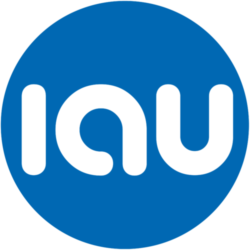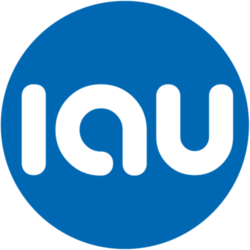About
In the Advanced Diploma - Electromechanical Engineering Technology program, students will gain a rich understanding of automation and robotics, enhancing their knowledge with courses in programmable logic controllers, robotic programming and applications, electropneumatics, fluid power, HVAC, computer integrated manufacturing, 3D modelling and more
Apply Now
Sheridan College
Main campus: Brampton, Ontario, Canada2001–2500+
Sheridan College
Key information
Duration
Full-time
3 years
Start date & application deadlines
Starting Date
June
January
Language
English
Credits
120 credits
Delivered
On Campus
Campus Location
Brampton, Canada
Disciplines
Engineering & Technology
Explore more key information Visit programme website
Overview
In the Advanced Diploma - Electromechanical Engineering Technology program, students will gain a rich understanding of automation and robotics, enhancing their knowledge with courses in programmable logic controllers, robotic programming and applications, electropneumatics, fluid power, HVAC, computer integrated manufacturing, 3D modelling and more. In the final semester, students work with fellow engineering students on a capstone project that provides solutions for Sheridan College's industry partners. Students can also apply for a paid co-op work placement that provides one year of real-world experience. Some of Sheridan's students have been hired as a direct result of their capstone or co-op participation. As a graduate of this program, students will have completed all the academic requirements for professional certification with the Ontario Association of Certified Engineering Technicians and Technologists (OACETT). Graduates may also be able to transfer into the third year of Sheridan's Bachelor of Mechanical Engineering degree (some bridge courses will be required) or degree programs at other universities.
Programme Structure
In the Advanced Diploma - Electromechanical Engineering Technology program, students will gain a rich understanding of automation and robotics, enhancing their knowledge with courses in programmable logic controllers, robotic programming and applications, electropneumatics, fluid power, HVAC, computer integrated manufacturing, 3D modelling and more. In the final semester, students work with fellow engineering students on a capstone project that provides solutions for Sheridan College's industry partners. Students can also apply for a paid co-op work placement that provides one year of real-world experience. Some of Sheridan's students have been hired as a direct result of their capstone or co-op participation.
As a graduate of this program, students will have completed all the academic requirements for professional certification with the Ontario Association of Certified Engineering Technicians and Technologists (OACETT). Graduates may also be able to transfer into the third year of Sheridan's Bachelor of Mechanical Engineering degree (some bridge courses will be required) or degree programs at other universities.
Academic requirements
Tuition Fee
Here’s what we charge for tuition.
The living costs include the total expenses per month, covering accommodation, public transportation, utilities (electricity, internet), books and groceries.
Scholarships Information
Visa information
Student visas for Canada
Are you from Bangladesh? You might need a student visa...
Don't worry, everything is ok. We're on it, and we're doing all we can to make your search for the right international degree in Canada a little easier and more enjoyable.
Still, while we’re catching up, you can always beat us to it and:
-
Check if you really need a student visa. Since you're from Bangladesh and planning full-time academic study in Canada yes, you’ll definitely need a study permit.
-
Start exploring the official website of the Canadian High Commission in Dhaka or the Canadian visa office. That’s where all the latest and most reliable information lives. Bookmark it, read it, reread it.
-
Check the deadlines. The visa process takes time and missing a step or delaying your application could mean missing your semester start. Not the kind of plot twist you want.
-
Go on a paperwork treasure hunt. Passport, university acceptance letter from a Designated Learning Institution (DLI), completed study permit application, proof of financial support, passport-sized photos, academic documents, language test results yes, the list is long, and yes, you’ll need every piece.
-
Start saving up. You’ll need to show you can financially support yourself while studying in Canada. That means proving you can cover tuition, living expenses, and maybe even your winter jacket and hot chocolate budget.
-
Enhance your English skills even if you’ve already taken IELTS, TOEFL or other tests. Strong language proficiency will benefit both your visa process and academic success.
All in all, getting your Canadian study permit might feel like a lot, but it’s a big step toward an even bigger adventure.
Thanks and good luck!
Work Permit
Work while studying in Canada
If you’re from Bangladesh, you will need a study permit with work authorization if you want to combine studying with working in Canada.
Here you see the rules for getting a part-time work permit.
If you hold a valid Canadian study permit, you’re allowed to work part-time in Canada during your studies. Currently, international students can work up to 20 hours per week during the academic year and full-time during scheduled breaks such as winter, summer, and spring holidays.
| How can I apply? At local authorities You do not need to apply separately for a work permit if your study permit includes work authorization. Most study permits automatically allow part-time work during studies and full-time work during breaks, as long as you meet the eligibility conditions. |
Application requirements Students can work part-time during their studies and full-time during official academic breaks, as long as their study permit is valid and their main activity remains full-time study. |

| Duration of work permit The work authorization is valid for the same duration as your study permit and is tied to your enrollment in a designated learning institution (DLI). |
Max. hours of work per week 20 hours/week You may work up to 20 hours per week during regular academic sessions and full-time during scheduled breaks such as winter holidays, summer vacation, and spring break. |
|
Required documents
|





